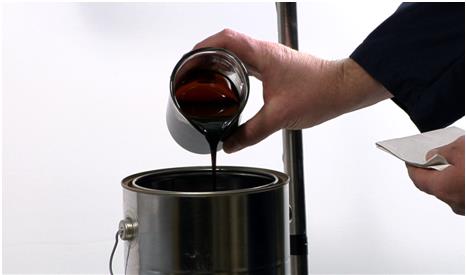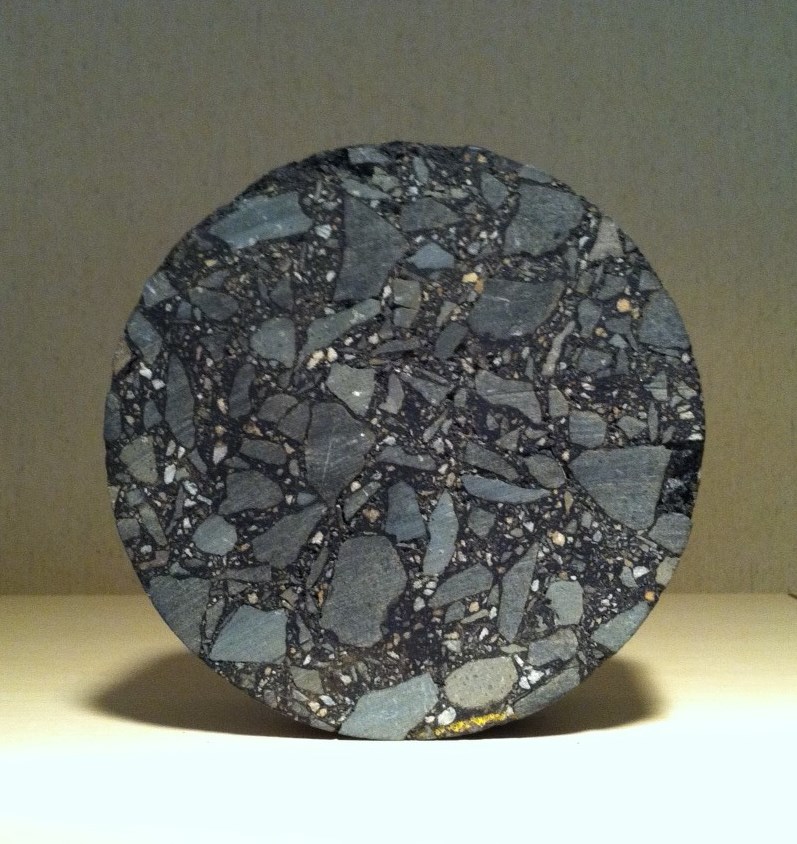The word “Asphalt” can be a very confusing term for most laypeople because it is used interchangeably with several other words to mean the same or different things. Now that’s not very clear is it? Let’s see if we can clear this up a bit. For most people “asphalt” and “blacktop” are terms used to describe what engineers and the asphalt industry call; “asphalt concrete” or “bituminous concrete”. Hopefully the following definitions and explanations will shed some light on the subject.
Asphalt, also known as bitumen, is a sticky, black and highly viscous liquid or semi-solid form of petroleum. It may be found in natural deposits or may be a refined product; it is a substance classed as a pitch. Until the 20th century, the term asphaltum was also used.
highly viscous liquid or semi-solid form of petroleum. It may be found in natural deposits or may be a refined product; it is a substance classed as a pitch. Until the 20th century, the term asphaltum was also used.
The primary use of asphalt/bitumen is in road construction, where it is used as the glue or binder mixed with aggregate particles to create asphalt concrete. Its other main uses are for bituminous waterproofing products, including production of roofing felt and for sealing flat roofs.
This definition of Asphalt will be discussed in this section as “Asphalt Binder/Cement”.
 Asphalt is a mixture of aggregates, binder and filler, used for constructing and maintaining all kind of roads, parking areas but also play- and sport areas. Aggregates used for asphalt mixtures could be crushed rock, sand, gravel or slags. In order to bind the aggregates into a cohesive mixture a binder is used. Most commonly, asphalt/bitumen is used as a binder. An average asphalt pavement consists of the road structure above the foundation/subgrade level and may include both unbound and bituminous-bound materials. This gives the pavement the ability to distribute the loads of the traffic before they reach the subgrade level.
Asphalt is a mixture of aggregates, binder and filler, used for constructing and maintaining all kind of roads, parking areas but also play- and sport areas. Aggregates used for asphalt mixtures could be crushed rock, sand, gravel or slags. In order to bind the aggregates into a cohesive mixture a binder is used. Most commonly, asphalt/bitumen is used as a binder. An average asphalt pavement consists of the road structure above the foundation/subgrade level and may include both unbound and bituminous-bound materials. This gives the pavement the ability to distribute the loads of the traffic before they reach the subgrade level.
Asphalt is the sustainable material for building pavements. It’s smooth, so vehicles consume less fuel and produce lower emissions; it’s quiet, so expensive noise walls don’t need to be constructed; it’s safe, providing excellent gripping power; and it’s durable, so that the road never needs to be removed and replaced. It is also the most recycled material in the U.S.
This definition of Asphalt will be discussed in this section as “Asphalt Concrete”.
Asphalt Basics presentation covers the uses of asphalt in ancient history as well as today.
Related Links
- History of Asphalt: http://www.beyondroads.com/index.cfm?fuseaction=page&filename=history.html
- How is Asphalt Used: http://www.beyondroads.com/index.cfm?fuseaction=page&filename=uses.html
- Q & A: http://www.beyondroads.com/index.cfm?fuseaction=page&filename=asphaltQandA.html
- Glossary: http://www.beyondroads.com/index.cfm?fuseaction=page&filename=glossary.html